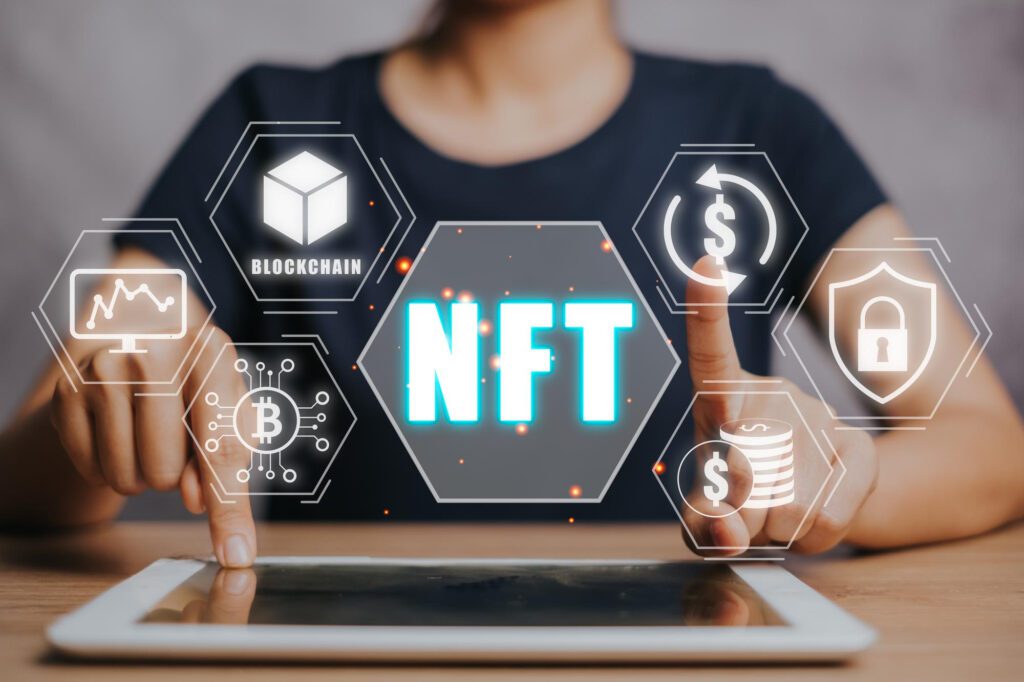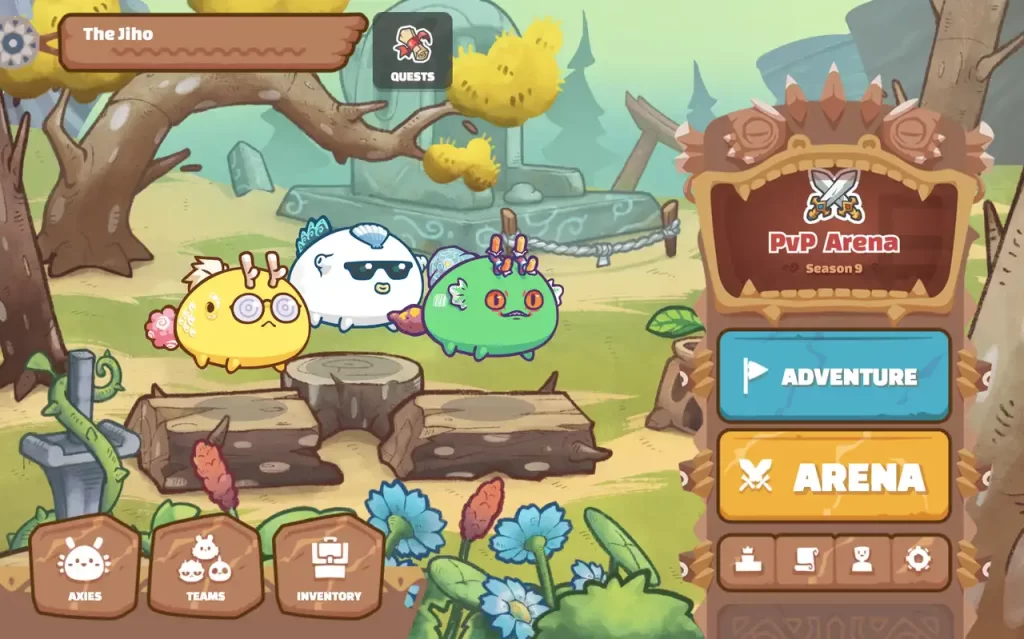Blockchain Game Create: How to Launch a Decentralized Experience
The advent of blockchain technology has revolutionized various sectors, and the gaming industry is no exception. With the rise of decentralized applications (dApps), game developers are now empowered to create immersive experiences that are not only engaging but also secure and transparent. This article delves into the intricacies of launching a blockchain-based game, exploring the technical frameworks, economic models, and real-world examples that illustrate the potential of decentralized gaming.
Understanding Blockchain Technology in Gaming
At its core, blockchain is a distributed ledger technology that enables secure and transparent transactions across a network of computers. In the context of gaming, blockchain can facilitate ownership of in-game assets, enhance player engagement through decentralized governance, and create new economic models through tokenization.
According to a report by DappRadar, as of Q3 2023, blockchain games accounted for over 50% of all dApp activity, with more than 1.4 million daily unique active wallets interacting with gaming dApps (DappRadar, 2023). This statistic underscores the growing interest in decentralized gaming experiences.
Key Components of a Blockchain Game
1. Smart Contracts
Smart contracts are self-executing contracts with the terms of the agreement directly written into code. They are fundamental to blockchain games, as they automate processes such as asset transfers, game rules, and player interactions. For instance, in games like Axie Infinity, smart contracts govern the breeding and trading of Axies, ensuring that ownership and transaction history are immutable and transparent.
2. Non-Fungible Tokens (NFTs)
NFTs are unique digital assets that represent ownership of a specific item or piece of content on the blockchain. In gaming, NFTs can represent characters, skins, weapons, and even virtual real estate. The NFT market has exploded, with sales reaching $10.7 billion in Q3 2022, according to NonFungible.com. This growth indicates a robust demand for unique digital assets in gaming.

3. Decentralized Autonomous Organizations (DAOs)
DAOs enable community governance in blockchain games, allowing players to have a say in game development and economic decisions. For example, the game Decentraland operates as a DAO, where players can vote on land policies and game features, fostering a sense of ownership and community engagement.
Steps to Launch a Blockchain Game
1. Conceptualization and Design
The first step in launching a blockchain game is to conceptualize the game mechanics, narrative, and economic model. Developers must decide whether the game will be free-to-play, play-to-earn, or a hybrid model. The economic model should consider how players will earn tokens or NFTs and how these assets can be traded or utilized within the game.
2. Choosing the Right Blockchain
Selecting the appropriate blockchain is crucial for the game’s performance and scalability. Ethereum is the most widely used blockchain for gaming due to its robust smart contract capabilities and large developer community. However, alternatives like Binance Smart Chain, Polygon, and Solana offer lower transaction fees and faster processing times, which can enhance the user experience.
3. Development of Smart Contracts
Once the blockchain is chosen, developers must write and deploy smart contracts that govern the game’s mechanics. This involves using programming languages such as Solidity (for Ethereum) or Rust (for Solana). Rigorous testing is essential to ensure that the smart contracts are secure and function as intended, as vulnerabilities can lead to exploits and loss of assets.
4. Creating NFTs and In-Game Assets
Developers must create NFTs that represent in-game assets. This process involves designing the assets, minting them on the blockchain, and integrating them into the game. Tools like OpenZeppelin provide libraries for creating ERC-721 and ERC-1155 tokens, which are standards for NFTs on Ethereum.
5. User Interface and Experience
The user interface (UI) and user experience (UX) are critical for player engagement. Developers should focus on creating an intuitive interface that allows players to easily interact with blockchain features, such as wallets and NFT marketplaces. Incorporating tutorials and guides can help onboard new players unfamiliar with blockchain technology.
6. Marketing and Community Building
Launching a blockchain game requires a robust marketing strategy to attract players. Engaging with the community through social media, forums, and gaming platforms can help build a loyal player base. Additionally, leveraging influencers in the gaming and crypto space can amplify the game’s visibility.
7. Continuous Development and Updates
Post-launch, developers must continue to support the game with updates, new content, and community feedback. This iterative process is vital for maintaining player interest and adapting to market trends. Games like The Sandbox have thrived by continuously evolving their platform based on user input and technological advancements.
Real-World Examples of Successful Blockchain Games
1. Axie Infinity
Axie Infinity is a prime example of a successful blockchain game that utilizes NFTs and a play-to-earn model. Players breed, battle, and trade Axies, which are unique digital creatures represented as NFTs. The game has generated over $4 billion in sales since its launch in 2018, demonstrating the lucrative potential of blockchain gaming (Axie Infinity, 2023).

NFTs and play-to-earn make Axie Infinity a blockchain success.
2. Decentraland
Decentraland is a virtual reality platform powered by the Ethereum blockchain, where users can create, experience, and monetize content and applications. Players can buy, sell, and develop virtual land parcels as NFTs. The platform has seen land sales exceeding $100 million, showcasing the demand for virtual real estate in decentralized environments (Decentraland, 2023).
3. The Sandbox
The Sandbox is a decentralized gaming platform that allows users to create, own, and monetize their gaming experiences using NFTs and the SAND token. The platform has partnered with major brands like Atari and Square Enix, further validating the potential of blockchain in mainstream gaming. As of Q2 2023, The Sandbox reported over 2 million registered users (The Sandbox, 2023).
Challenges and Considerations
While the potential of blockchain gaming is immense, developers must navigate several challenges. Scalability remains a significant concern, as high transaction fees and slow processing times can hinder user experience. Solutions like layer-2 scaling (e.g., Polygon) and alternative blockchains (e.g., Solana) are being explored to address these issues.
Additionally, regulatory uncertainty surrounding cryptocurrencies and NFTs poses risks for developers. Staying informed about legal developments and ensuring compliance with local regulations is essential for long-term success.
Conclusion
Launching a blockchain game involves a multifaceted approach that encompasses technical development, community engagement, and continuous iteration. By leveraging smart contracts, NFTs, and decentralized governance, developers can create unique gaming experiences that empower players and foster economic opportunities. As the blockchain gaming landscape continues to evolve, staying abreast of technological advancements and market trends will be crucial for success. The future of gaming is decentralized, and those who embrace this paradigm shift will be at the forefront of a new era in interactive entertainment.
In summary, the key takeaways for launching a blockchain game include understanding the core components of blockchain technology, selecting the right blockchain, developing secure smart contracts, creating engaging NFTs, and fostering a strong community. By addressing these elements, developers can successfully navigate the complexities of decentralized gaming and unlock new possibilities for player engagement and monetization.

